Buying a house in Italy?
In this article, we explore the step-by-step process of buying Italian property.
From picturesque villas to seaside retreats, discover essential legal tips and insights for a safe property purchase.
To discuss your situation, get in touch for a free consultation, or click here to get all our FREE guides for foreigners planning to renoveting, buy, sell or live in Italy.
Real Estate Options Across Italy
Whether you’re in the market for an apartment or a villa in prime neighborhoods of Rome, Milan, Florence, Venice, and Naples, or hidden real estate treasures in Sardinia, Tuscany, or along the scenic Amalfi Coast, Italy offers options for everyone.
Italy’s lake regions, including Lake Maggiore, Lake Como and Lake Garda boast breathtaking properties. Alternatively, explore seaside retreats in Calabria, Sicily, Liguria on the Riviera di Ponente, Sardinia’s Costa Smeralda, or coastal havens in Campania, Capri, and Ischia. In addition, there’s a wealth of beauty waiting to be discovered in smaller, lesser-known villages and small towns throughout the country.
Recent government efforts have focused on attracting foreign investment to boost the Italian property market. A range of incentives is available, such as tax breaks for first-time homebuyers and subsidies for renovation projects.
Understanding the Process of Buying a House in Italy
The process of buying a house in Italy is substantially different from many countries. To navigate it successfully, it’s essential to grasp the three main stages of the purchase process:
1. Reservation Offer: The potential buyer formalizes their intention to buy the property.
2. Preliminary Sales Agreement: The parties agree on the details of the various terms of the transaction.
3. Final Deed of Sale: Completion of the transaction, transferring ownership from the previous owner to the new owner.
Buying a House in Italy: The Reservation Offer (or “Proposta di Acquisto”)
When a buyer identifies a property they’re interested in purchasing, the initial step involves submitting a reservation offer. This offer serves to communicate the buyer’s desire to acquire the property under predetermined conditions from the vendor. This initial action holds significant importance; upon acceptance, the offer transforms into a legally binding contract, compelling both parties to fulfill obligations in order to finalize the transaction.
Conformity and Controls in Italy
In Italy, there is no legal requirement for real estate agents to verify the legal compliance of the properties they represent. Moreover, their incentive structure may discourage full disclosure of property details to buyers, as their commission often hinges on transaction completion.
Likewise, Italian notaries typically don’t perform comprehensive urban planning and land registry conformity checks. They primarily depend on information provided by the seller.
From a legal standpoint, the responsibility falls on the potential buyer to conduct all necessary legal due diligence when buying a property in Italy.
Due Diligence: Preliminary Verification and Documentation
Prior to submitting a reservation offer, it’s imperative to conduct preliminary due diligence by examining pertinent documentation and accessing various real estate records. This process enables the potential buyer to evaluate the property’s compliance with land registry, zoning, and planning regulations. Additionally, it’s crucial to ensure the absence of mortgages, debts, or outstanding charges on the property. Simultaneously, buyers should verify that property systems, such as electrical and photovoltaic systems, comply with regulations. Additionally, they should anticipate any tax implications associated with the acquisition.
Drafting the Reservation Offer
Following preliminary due diligence findings, the prospective buyer can submit a formal reservation offer, which should be tailored to comprehensively safeguard their interests.
Many real estate agencies may suggest using a pre-printed reservation offer form. However, these generic templates often fall short in ensuring full protection for the buyer. They typically fail to accurately represent the property’s specifics such as planning and construction permits, existing mortgages, absence of a habitability certificate, energy efficiency or any third-party rights.
Moreover, they do not address the buyer’s individual circumstances such as financing arrangement needs, timelines for formalities, tax implications, and other pertinent factors related to the purchase.
If a buyer fails to include relevant conditions in the reservation offer, it will not be possible to add these to the preliminary contract in the next phase of the purchase process.
Consulting a Lawyer when Buying a House in Italy
While not mandatory, it’s commonplace for buyers to engage a lawyer’s services when buying a house in Italy.
- The lawyer undertakes thorough due diligence to facilitate the acquisition on behalf of their client, optimizing tax and financial considerations.
- They handle administrative procedures, including obtaining an Italian tax code.
- After conducting due diligence, the lawyer negotiates on the buyer’s behalf, advocating for adjustments to the reservation offer terms to protect their interests.
- They customize the reservation offer based on findings, ensuring inclusion of necessary clauses, such as addressing planning issues or mortgage cancellation.
Typically, the reservation offer is drafted bilingually (in Italian and the buyer’s language) to provide clarity on legal implications for all parties involved.
Consequences of Acceptance
Upon the vendor’s acceptance of the reservation offer, two significant outcomes unfold:
- the buyer pays a deposit to the seller, and
- the seller removes the property from the real estate market, typically for a 15-day period.
When signing the reservation offer, the purchaser remits a deposit to the vendor, which, upon finalizing the purchase, becomes partial payment of the total price. However, if the vendor declines the reservation offer, the buyer pays no deposit.
In many countries, payments like deposits, installments, or balances are commonly held in escrow. However, in Italy, such payments are directly transferred to the vendor’s bank account. This arrangement carries implications and risks for the potential buyer. If one of the parties to the transaction fails to meet conditions in the reservation offer or if either party withdraws from the transaction before the final deed of sale, the potential buyer may encounter challenges in reclaiming the deposit.
To protect this and later deposits in the event of any contingencies or disputes, notaries in Italy have the option to hold deposits in escrow or holding accounts. However, the use of such an account must be expressly stipulated as a condition in the reservation offer.
Real Estate Agency Commission
In contrast to many countries where the real estate agent’s commission is payable upon completion, Italian law mandates commission payment upon signing the reservation offer, unless explicitly stated otherwise in the reservation offer.
Buying a House in Italy: The Preliminary Sales Agreement (or “Contratto Preliminare di Compravendita”)
The contratto preliminare di vendita holds significant legal importance as it delineates the detailed terms and conditions of the sale. The buyer must carry forward terms and conditions established in the reservation offer to the preliminary contract. Additionally, the preliminary contract forms the basis for the notary public to draw up the deed of sale in the final phase of the purchase process.
Engaging Legal Assistance
Again, the estate agent may provide a standard preliminary contract. This may lack conditions relating to the buyer’s personal situation. It could ultimately result in financial loss through inability to complete the purchase or acquiring a property needing costly remedial work. Therefore, it is highly advisable for the buyer to engage the services of a lawyer to draft the preliminary contract, ensuring all details are in their best interests.
Validity of Contract Conditions
While it may be tempting to modify an existing template to cover various situations, it is crucial to note that Italian law only considers specific types of conditions as valid. Conditions that solely benefit one party, known as potestative conditions, are invalid under Italian law. For instance, a condition allowing the buyer to unilaterally terminate the agreement if the property doesn’t meet their expectations is not acceptable. However, conditions affecting both parties, such as the buyer’s ability to secure a mortgage, are valid.
Legal Implications and Deposit
If the vendor’s legal advisor drafts the preliminary contract, it’s essential that the buyer to has their own lawyer examine it. The lawyer can provide detailed advice on the legal implications before signing.
An essential legal element of the preliminary contract is the payment of a second deposit (“caparra confirmatoria”), typically at least 10% of the purchase price.
The buyer will lose their deposit if they back out of the purchase without a valid legal reason stipulated in the preliminary contract. However, if the vendor withdraws from the sale, the deposit must be refunded in full, with the buyer also having the right to pursue a claim for double the amount of the deposit through the Italian courts.
Role of the Notary and Buyer’s Legal Safeguards
In the preliminary contract, the parties also designate the date for finalizing the sale in the presence of a public notary, an official of the Italian State responsible for overseeing property transactions among other duties.
By law, notaries must remain impartial in property transactions. They cannot provide legal advice to any of the parties involved. Therefore, a notary cannot substitute a lawyer in representing the buyer’s interests, highlighting the importance of engaging an independent lawyer to ensure legal safeguards.
The notary conducts basic checks including confirming each party’s rights to buy or sell the property, conducting land registry searches for any claims or mortgages, and verifying planning permission.
Since buyers have already paid a substantial deposit before notarial checks occur, it is essential to ensure that all aspects are clear. Before committing to the preliminary contract, ensure that it includes protective conditions should issues arise during the notary’s checks.
Buying a House in Italy: The Deed of Sale (or “Rogito Notarile”)
The last step in the process of buying a house in Italy consists of completing the final deed of sale in front of a notary. The public notary usually conducts the signing of the deed of sale at their office. They read aloud and explain the Italian version of the deed in the presence of the vendor, buyer, and/or their legal representatives.
If a party to the transaction is unable to be present at the signing, they can grant power of attorney to a lawyer to represent them.
Parties to the transaction have the opportunity to read and check the deed to ensure accuracy. Having a bilingual lawyer present allows the buyer immediately address any questions or concerns.
Once all relevant parties have signed the deed, the buyer pays the balance of the purchase price to the vendor and receives the keys to the property.
It takes approximately one month, following the signing of the deed of sale, for the relevant land registry office to register the deeds of new ownership. Following registration, the new owners receive a copy of the title deeds. If not present in Italy when the title deeds become available, the lawyer can collect them on behalf of the buyer and send them on or hold them in safekeeping.
Choice of Notary: A Privilege of the Buyer
Italian law grants the buyer the privilege of choosing the notary to establish the deed. It is advisable to avoid following the recommendations of the real estate agent or the seller on this point to prevent any conflict of interest. Opting for a notary recommended by your lawyer guarantees their level of independence and impartiality.
Interpreter and Bilingual Lawyer
Italian law mandates that any foreign buyer not fluent in Italian must obtain the assistance of an interpreter at the time of signing the deed of sale. Engaging a bilingual lawyer is thus an economical solution as they can act both as a legal advisor and an interpreter.
To discuss your situation, get in touch for a free consultation, or click here to get all our FREE guides for foreigners planning to renoveting, buy, sell or live in Italy.
Finally …
Before purchasing a house in Italy, it’s essential to engage a local lawyer with expertise in property matters. You should personally select your own rather than relying on recommendations from the estate agent or vendor.
Choose a lawyer who is proficient in your language to ensure not only legal guidance but also translation services. Your lawyer should also be capable of recommending surveyors, builders, and other professional services as needed.
Additionally, you may wish to give your lawyer power of attorney in case you are unable to be present in Italy for the completion of the purchase. Entrusting this responsibility to someone with potentially conflicting interests, such as an estate agent or a friend, can pose significant risks.
Before proceeding with your property investment in Italy, consider reaching out to us for assistance. At De Tullio Law Firm, we offer comprehensive advice and support throughout your Italian property purchasing journey. With over 55 years of experience handling clients’ Italian and cross-border property, family, and inheritance matters, we are well-equipped to guide you.
Book a FREE CONSULTATION with one of our lawyers here.







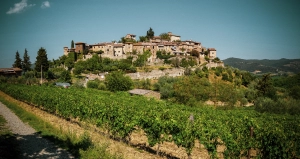
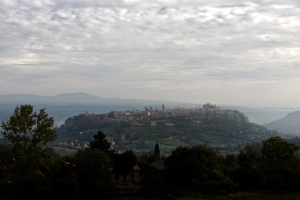 Historical cities like Perugia and Assisi abound with artistic and architectural treasures, echoing the region’s rich significance in Italian history. With its clifftop location, Orvieto offers breathtaking panoramic views and is home to a magnificent Gothic cathedral. Gubbio captivates with its impeccably preserved medieval ambiance, labyrinthine cobblestone streets, and a palatial legacy tracing back to the 14th century. Moreover, the delectable local cuisine and vibrant traditional festivals make Umbria an irresistible destination for those seeking to invest in a home in the heart of Italy.
Historical cities like Perugia and Assisi abound with artistic and architectural treasures, echoing the region’s rich significance in Italian history. With its clifftop location, Orvieto offers breathtaking panoramic views and is home to a magnificent Gothic cathedral. Gubbio captivates with its impeccably preserved medieval ambiance, labyrinthine cobblestone streets, and a palatial legacy tracing back to the 14th century. Moreover, the delectable local cuisine and vibrant traditional festivals make Umbria an irresistible destination for those seeking to invest in a home in the heart of Italy.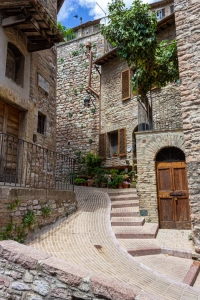
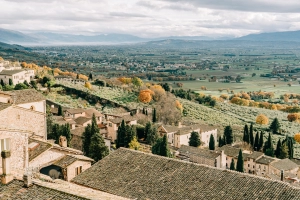
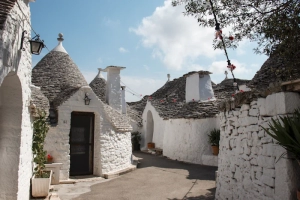

 Italy’s proactive approach to embracing digital nomads underscores its commitment to fostering innovation and inclusivity in the contemporary workforce. By providing a clear framework for entry and stay, the decree not only attracts top talent but also nurtures a dynamic ecosystem conducive to professional growth and cultural exchange among digital nomads in Italy.
Italy’s proactive approach to embracing digital nomads underscores its commitment to fostering innovation and inclusivity in the contemporary workforce. By providing a clear framework for entry and stay, the decree not only attracts top talent but also nurtures a dynamic ecosystem conducive to professional growth and cultural exchange among digital nomads in Italy. With the aforementioned exemption under the FPPRA, Canadian investors exploring Italian real estate can now seize promising prospects.
With the aforementioned exemption under the FPPRA, Canadian investors exploring Italian real estate can now seize promising prospects. Easter Sunday in Italy also means gathering around tables filled with local dishes, from tasty lamb to artichokes, and the traditional Easter bread such as the sweet, dove-shaped “colomba”. This meal, following a period of fasting and reflection during Lent, brings forth the happy spirit of Easter, highlighting how important family and ancient traditions are in Italian life.
Easter Sunday in Italy also means gathering around tables filled with local dishes, from tasty lamb to artichokes, and the traditional Easter bread such as the sweet, dove-shaped “colomba”. This meal, following a period of fasting and reflection during Lent, brings forth the happy spirit of Easter, highlighting how important family and ancient traditions are in Italian life. Easter in Italy is characterized by parades and processions that tell the story of Christ, especially in the south, adding drama to the celebrations. The following day, known as Easter Monday or “Pasquetta,” Italians go out to enjoy the spring weather with picnics and walks, strengthening the sense of community and the joy of the season.
Easter in Italy is characterized by parades and processions that tell the story of Christ, especially in the south, adding drama to the celebrations. The following day, known as Easter Monday or “Pasquetta,” Italians go out to enjoy the spring weather with picnics and walks, strengthening the sense of community and the joy of the season.
